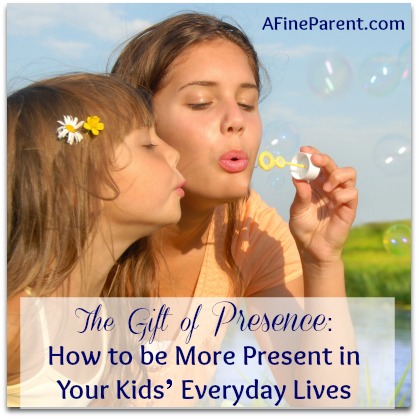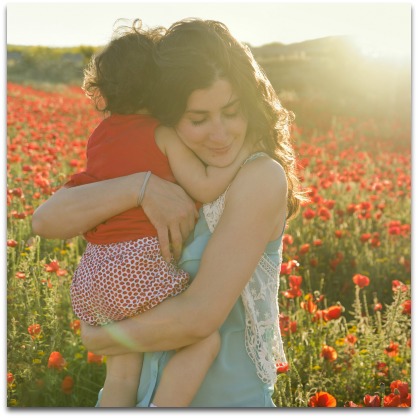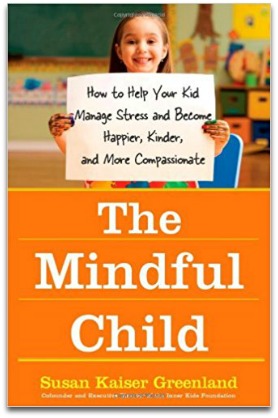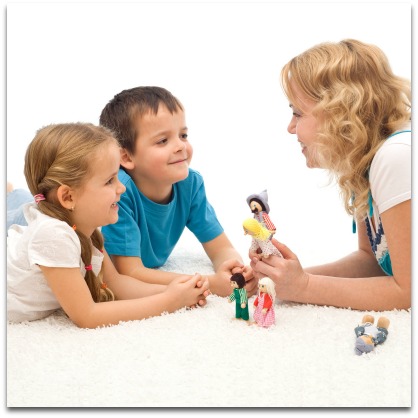 The other day, my 8-year-old daughter paused mid-conversation and said “Mummy, I wish we were always on the same map together.”
The other day, my 8-year-old daughter paused mid-conversation and said “Mummy, I wish we were always on the same map together.”
Clearly, I had been missing something while we were chatting.
We had been casually discussing ideas for her upcoming birthday party, when she mentioned the sorts of things that other parents do for their kids’ birthday celebrations.
Some were too extreme (jelly wrestling, anyone?). Others were a bit too risky for my personal liking (Go Kart racing, just for starters). And others fell firmly into the “Sorry honey, but it just costs too much” basket…aka, backseat limousine parties.
Clearly I missed the memo that we were at the age when the backyard ‘sausage rolls and musical chairs’ parties were being phased out.
But there was something else I clearly missed, too. Because somewhere along the way, the wires between trying to be a communicative, ‘open to suggestions’ parent and a ‘this is how we do it’ parent had got rather tangled.
Before I knew it, I’d launched into a three minute spiel about the logistics of planning, parental supervision, cost per child and how she couldn’t possibly understand me. Neither could I really, for that matter. I’d just broken out in a full-on tirade, for the sake of asserting my ‘parental voice’ over her priceless eight-year-old wisdom.
In fact, my daughter did understand what I was saying. More than I ever wanted to admit to her or myself. Her wisdom outshone me and I barely even noticed its light reflecting at me.
I’ll be honest with you. It took me a few good days for the meaning behind her words to really sink in.
Forgive me, I’m a slow learner. But when I finally dissected what my daughter meant about “being on the same map together,” I realized that it wasn’t just about having her own way (although no doubt that was her top priority), but for her yearning to be ‘listened’ to and not just ‘heard’.
I also realized that as a busy mum to five children, these crossed parenting wires had managed to sneak themselves into even the most mundane of conversations in our everyday lives.
So, I spent some time mulling silently over a few of the most recent conversations I had been having with my kids. And how, in the busyness of life, I had somehow ‘missed’ their desire to be properly heard and understood.
Sound familiar?
None of us set out to deliberately ignore our children. Life gets busy (not to mention exhausting) and it’s all too easy to get caught up in the auto-pilot grind of meal prep, school runs, errands, homework, and bedtime.
Cue: Groundhog Day.
But slowing down long enough to really, really, listen, is, as we’ll learn together, oh, so worth it.
If you’ve found yourself in the same boat, here are three things I have learned about why this is important, followed by how to be more present:
Children Need to Know You are Their ‘Safe Base’
Children need to know that they can go out and explore the great big world, both literally and metaphorically, and that they can come back to you when they need to feel safe.
 This means letting them try and helping them with their grandiose ideas and life experiments, even if you think those ideas are silly. No matter if it still involves finger painting or stacking Lego blocks on your living room floor. The important thing is that you are listening and there.
This means letting them try and helping them with their grandiose ideas and life experiments, even if you think those ideas are silly. No matter if it still involves finger painting or stacking Lego blocks on your living room floor. The important thing is that you are listening and there.
Have you seen the Still-Face experiment from 1970?
Essentially these experiments involved one infant and their parent interacting with each other for a brief period, immediately followed by a 3-minute period of non-responsive ‘interaction,’ whereby the parent remained ‘still-faced’ aka no verbal response or visual expressions allowed.
In each experiment noted, the infant, after repeated efforts to resurrect some sort of reciprocal interaction, began to withdraw from the parent, making the experiment one of the most replicated findings in developmental psychology.
Although watching these videos, may initially strike you as unnecessary and potentially a tad cruel, it’s clear that these experiments highlight the need for children of any age, to have their feelings palpably “felt” and visibly acknowledged, despite any perceived communication differences.
Children Need Us to Respect Their Autonomy
Just as children need to know that you are their safe base, they also need to feel that you respect their quest for independence.
A 2015 study from the University of Missouri-Columbia, showed that mothers’ who supported their children’s growing needs for autonomy, were viewed in a more positive light by their children, as early as fifth grade.
Unfortunately for us parents, autonomy, as we know it, begins far earlier than the fifth grade. Developmental psychologist, Erik Erikson, advised fostering a sense of autonomy as early as the second and third years of life.
This can be expressed in the daily act of allowing your children to be responsible for their own ‘special job’ around the house (sorting out their socks or packing away certain (hardy) groceries are all safe places to begin).
Even by acknowledging and exploring their frustration and disappointment when their beloved sandcastles get washed away at the beach, we support their autonomy.
Too often, it’s tempting to scoop our children up in our arms and neutralize the consequences, or just rebuild the darn sandcastle for them!
However, it’s in these experiences that children learn the essence of what autonomy is all about: self-regulating their thoughts, emotions, and behaviour, all within the safe boundaries, and watchful eyes of their parents.
Why is this important? In a nutshell, it helps promote the life skills needed when we parents are not around. It allows children to test their own strengths and limitations out in the ‘real world,’ and to discover and lean on their intrinsic motivation, security and independence, especially if life ever throws them a curveball, or two.
Mindful Children = Compassionate Children
 Being mindful entails an active and open attention to the present experience without any judgement or Back to the Future moments.
Being mindful entails an active and open attention to the present experience without any judgement or Back to the Future moments.
When we can be mindful with our children and teach them how to be in the moment themselves, we are creating adults who are more mindful and compassionate with both themselves and others.
According to the world-wide school based mindfulness curriculum, MindUP, 90% of students who participated in the MindUP program showed improvement in their ability to get along with other children and exhibited reduced incidences in bullying. Win-win!
If you’re interested in this subject, you may also want to check out the book The Mindful Child by Susan Kaiser Greenland.
In the book, the author explores mindful awareness techniques and states that “Mindful awareness promotes physical and mental well-being as well as character and ethical development…”. And, “These practices (meditation techniques), systematically develop attention while encouraging kindness, compassion and self-knowledge.”
So What Does it Mean to be a Present Parent?
 Being a present parent requires more than just ‘being’ there with your children.
Being a present parent requires more than just ‘being’ there with your children.
We all lead busy lives and for many of us this usually means either one or both partners working just to make ends meet.
While we may not all have the same number of hours to physically be with our kids each day, we all have the choice as to how we spend the time we do have with them.
Let’s face it, parenting can feel like an emotional, scary and surreal experience. No matter what ages your children are! And it goes fast!
How many times have you watched them blow out an extra candle on their birthday cake, only to wish you could rewind the best parts of the year and do it all over again?
Have you paused to consider that those ‘best parts’ were likely to be the moments when you were truly ‘with’ them? When you were so absorbed in watching them take their first steps? Or when you joined in the excitement of their first visit from the tooth fairy? Or, heaven forbid, when you took them out to dinner to celebrate obtaining their driver’s license? Scary milestone, right there!
From parenting my five children over the past 18 years, I’ve experimented with a few ways to encourage a more present connection with my children. So here are my top five ‘tried and trusted’ methods from my family to yours, to help firmly establish the concept of what I like to call ‘present moments.’
1. Start Single-Tasking
Born out of the desire to get twice as much done, in half the time, the concept of multi-tasking as we know it, has now seen its hey-day.
In fact, as stated in this NRP article, researchers have determined that the human brain can only focus on one task at a time.
So, if anyone tries to tell you otherwise, tell ‘em it’s simply not possible to multi-task effectively. Zip, nada, zilch. The brain is simply switching between tasks. We need to start single-tasking instead. Focusing on one task at a time can lower your stress and ensure you do a better job! And that you are actually present when you are hanging out with them.
2. Start an Appreciation Jar
This one is a relatively new addition to our family, but it works a treat for most age groups. Take a glass jar and label it “Appreciation Jar”.
For each moment that you or another family member has expressed appreciation for, simply jot the moment down on a small bit of paper and pop it in the jar.
It’s wonderful to look back on all those moments together, either individually, or as a family. Not just for sentimental reasons, but to also help put life into perspective and see what really matters to everyone.
3. Unplug the Family
 This one’s seems like a no brainer, yet, I’ll be totally honest with you, it’s the hardest thing to ever do! Naturally, I’m referring to unplugging the electronic devices (not the kids).
This one’s seems like a no brainer, yet, I’ll be totally honest with you, it’s the hardest thing to ever do! Naturally, I’m referring to unplugging the electronic devices (not the kids).
Having electronic devices charged up and at the ready, can become a pesky distraction and a huge temptation (for adults and kids alike) especially in the beginning when you are trying your darnest to be more present with your kids and introduce a new habit.
Even if it’s just putting your phone/tablet/insert latest technological gadget, away for 10 minutes a day while you sit down and connect with each other, it’s a start.
I promise, 10 minutes goes by so quickly and as you start to see some encouraging signs, see if you can try and increase the time you unplug together. But don’t skip this step and set a timer, if you must!
4. Set Goals Together
Get your kids involved in small or large family goals, like deciding where to go to on your next vacation or even something simple like selecting your outfits to wear for the next three days, sans the clubbing gear!
In the UNICEF resource guide “Every Child’s Right to be Heard,”it states that there is a “Growing body of evidence that routinely taking children’s views and experiences into account – within the family, etc. – helps develop children’s self-esteem, cognitive abilities, social skills and respect for others.”
Sounds like a worthwhile cause, right? Plus, you are planning quality time to spend together.
5. Walking in Rhythm
Just to make it clear, rhythm is not the same as ritual.
Rhythm in this context is the fluid movement of our daily lives moving in concert with each other. It’s the ins and the outs of who we are and what moves us when we are in our groove. This is vastly different from a ritual, which is more rigid and orderly and allows for less (or even zero) flexibility, like dinner time.
In your own family dynamics, you might see a rhythm play out as one of your kids is regular scarfing down breakfast at 6am sharp, whilst the other one is beating his personal best sleeping record of 10 hours straight.
Yes, there are elements of rituals in this example (early riser/late riser dynamics), but there is also the idea of each child finding their personal rhythm that flows on throughout their entire day.
Recognising and honouring everybody’s personal rhythm is a great way to tap into the ‘best time’ to try and establish a present moment.
I’ll admit, this IS a tough one to work around, especially as the kids get older and school takes over your lives, and they start to spend their weekends with extra-curricular activities, and sleepovers.
But I promise, once you get a sense of each child’s rhythm, you’ll be able to navigate ways into your day together that consider both of your needs and has some wiggle room to boot. Your kids will thank you for it (one day).
The 2-Minute Action Plan for Fine Parents
For our quick-action today, let’s take a walk through some of these easy but thought-provoking questions –
* What is your idea of being present? How do you define it. What does it look and feel like to you and your child?
* Using a scale of 1-10, how effectively is what you’re currently doing to establish presence, engaging your child/children?
* Which of your current ‘present moment’ techniques do you need to keep?
* Which are the techniques you need to let go of?
* What new types of ‘present moments’ can you come up with? Try to find one new type of present moment technique to implement this week. And try to let go of whatever is not serving you and your family. There is no judgement in this! Every family is different, and what works for one family, might not work for another. Play around and see what new ideas you can develop together as a family. Remember, be patient and better yet, be open to suggestions!
* Journal the journey. Sometimes it’s a bit of trial and error! Ask yourself, has this brought you closer together? Are YOU finding yourself calmer and more in control? Has your children’s behaviour improved as a result? Write it all down and evaluate where you’re at.
The Ongoing Action Plan for Fine Parents
In the next few months, try and do the following:
Catch yourself when you start to fall back into the busyness trap. Stop and take stock of how much of yesterday (or the day before) you were present with your children? If you’re scratching your head for answers, then don’t beat yourself up. Find one present moment technique that you would like to try out and stick to it for the next 7 days.
Be realistic and only choose what is most likely to work with your upcoming schedule. More importantly, keep practicing active listening. Let your child know that you are listening to them and that you can really feel their feelings.
Hold yourself accountable and keep track of the results in your journal. Hopefully, you’ll find your kids will be calmer, happier and more confident as they go about their daily lives. Learn to accept that it won’t all be rainbows and unicorns (oh, how I wish!) But it really doesn’t take much to being noticing even a tiny positive difference. It all begins with a single step.
And in case you were wondering…as for my daughter’s birthday party, we decided to keep it simple and opted for a sleepover and movie night. I left her in charge of selecting the decorations, movie snacks and choice of movies to watch, (Ella Enchanted, here we come!). She felt confident, appreciative and in control. We ended up having a blast discussing movie ideas together and for me, these are the types of ‘present moments’ that I will cherish forever. And pop into my appreciation jar.
I love this! So full of words that reaffirm the choices I try to make and ideas to help me make these choices more often. I have a little one at home who was desperate to be heard this morning and we were too busy trying to get out the door to make that happen. This was a great reminder to readjust my priorities.
So glad you enjoyed my article Ashley! All the very best to you x